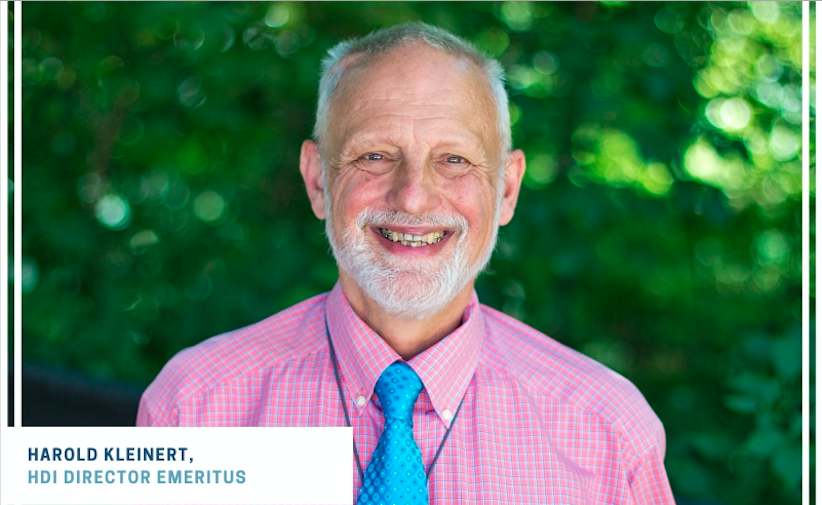One day, says Dr. Harold Kleinert with a laugh, his colleagues are going to decide he’s worked enough and tell him to properly retire.
It hasn’t happened yet.
Kleinert has been involved with HDI since the 1980s. He currently is employed through the university’s STEPs program, but Kleinert has held many positions with HDI, including executive director. It’s no exaggeration to say that without him, educational practices and policies in Kentucky, and even across the US, would have looked very different.
Kleinert’s journey with HDI began when he became involved in an effort to integrate classrooms for students with disabilities. He used his 15 years of classroom teaching experience as part of an HDI project team to work with school districts that were integrating students with severe disabilities as part of a federal grant program that lasted for 10 years.
“At that point, Kentucky had 15 separate schools for students with severe disabilities. The only reason they were in those separate schools is because they had severe disabilities,” Kleinert said. “We worked with districts throughout the state, and by the end of that grant, all but one of those schools had closed and all those kids had moved to regular schools.”
At that same time, Kentucky was approaching the question of how these students should be assessed as part of the state’s newly passed educational reform act.
“They had no idea how to include those kids because they couldn’t take part in the regular assessments. And so the recommendation was, well, we’ll just give them a zero, but write down what they can do. And I said that’s not acceptable,” Kleinert said.
That led to him teaming with Jacqui Kearns to create Kentucky’s first assessment specifically for students with severe disabilities. It was adopted in 1992. Five years later, educators and families testified about its effectiveness in front of Congress, which led to a new requirement in the Individuals with Disabilities Education (IDEA) Act that all states would have to include students with the most significant disabilities in their respective state assessments. Later, as these assessments were being developed, HDI would be involved in helping states develop and refine them.
It wasn’t long after that Kleinert became the executive director of HDI, where he would put a stamp on the organization that still exists today, such as the Developmental Disabilities Graduate Certificate and Fund For Excellence program, both of which are still part of HDI today.
In 2015, Kleinert stepped down as director, but retained a part-time position where he remains to this day, continuing to work in the programs that he helped start, among other things.
In the latter part of his career, Dr. Kleinert worked with Dr. Stephanie Meredith and Dr. Carol Lunney to provide training to physicians and other health care providers on how to deliver an accurate, balanced and supportive diagnosis to parents of children with Down syndrome and other healthcare conditions.
But teaching was what most connected him to HDI, and teaching is still one of his proudest accomplishments. “Mentoring and teaching students, as well mentoring staff, has been one of the most rewarding things,” he said. “Teaching and mentoring students and research assistants have been very important to me.”



